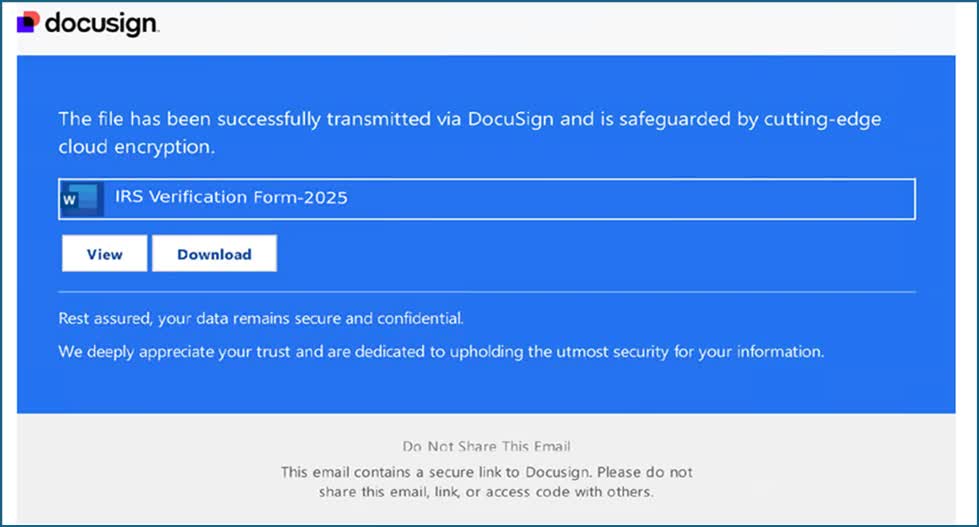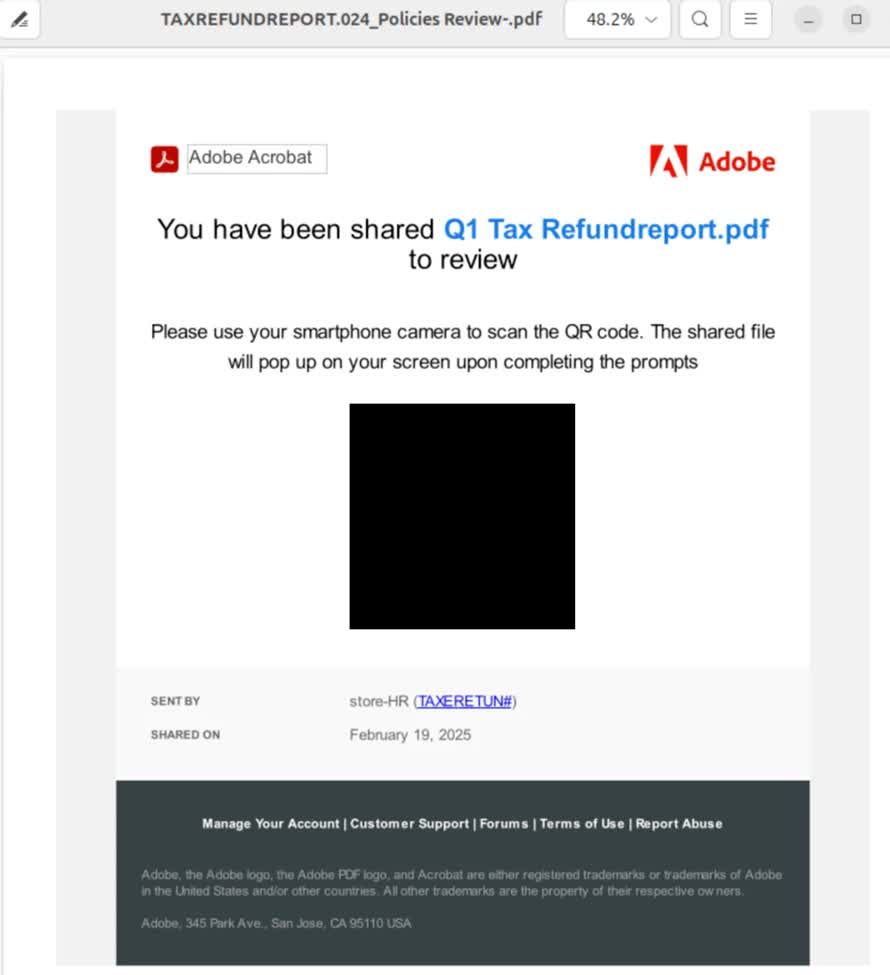In a nutshell: April means one thing for many Americans: tax season stress. And while you’re scrambling to file before the deadline, cybercriminals are just as busy – working to trick you into handing over your personal and financial information. Now, Microsoft has issued a warning about a new wave of tax-themed phishing scams that are more convincing than ever.
It’s tax time, and scammers are pulling out all the stops. Their latest schemes include fake IRS emails, malicious PDFs, and even QR codes designed to redirect victims to malware-infested websites.
Many of these attacks aim to unleash dangerous payloads such as Latrodectus, BruteRatel C4, and AHKBot on Windows devices along with remote access trojans that can give attackers full control over your system. The ultimate goal is all too familiar: steal your data, drain your accounts, or even open credit cards in your name.
The emails might look legitimate, at least at first glance. With subject lines like “Unusual Activity Detected in Your IRS Filing” or “Important Action Required: IRS Audit,” they’re crafted to scare you into acting fast.

Opening any attached documents, such as PDFs, can set off a chain reaction. Victims are often redirected through a maze of shady links, eventually landing on a fake DocuSign page that downloads malware the moment you click “Download.”
Some scammers are taking a more patient approach, starting with a seemingly harmless email from a fake “potential client” claiming their previous CPA botched their taxes and urgently needs assistance. If you bite and reply, the next message could include a malicious PDF disguised as tax documents.
Microsoft flagged one such campaign targeting accountants, where the attachment delivered GuLoader – a highly evasive malware downloader that uses encrypted shellcode and cloud hosting to bypass security. Once inside, it deploys Remcos, a remote access trojan, giving attackers full control of your system. From there, they can steal sensitive data or manipulate your system at will.

As for how to avoid getting scammed, take a deep breath. Scammers thrive on panic, so don’t let them rush you. Always double-check sender addresses, avoid clicking links in unexpected emails, and never download attachments unless you’re absolutely certain they’re safe. Remember: the IRS will never reach out via email, text, or social media to request personal or financial information.
Microsoft also confirms that its security tools are actively blocking these scams. Defender for Office 365 automatically flags and blocks phishing emails and malicious attachments, while Defender for Endpoint provides comprehensive protection across devices.
Source link